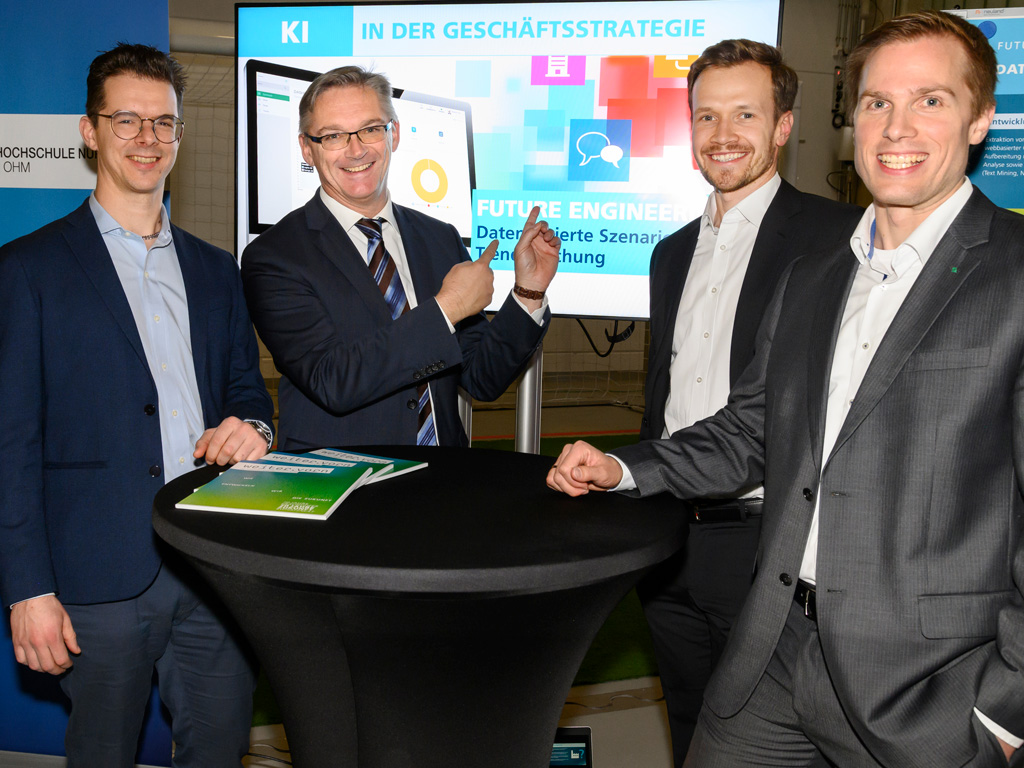Our Future Engineering research group compiles automated market and technology trends

Sustainable and targeted business development relies on valid forecasting, which must be based on specific monitoring of relevant major trends. This is the only way to identify risks and opportunities in good time and to secure strategic decisions in a well-founded manner – but this calls for the right infor- mation. In the age of the Internet, this is easier to access than ever before, but the sheer wealth of information also leads to a greater workload for companies, market researchers, or trend spotters seeking to generate comprehensive and detailed information about trends or changes in the market at an early stage. This is where the Future Engineering research group comes in. Founded in 2018, the group is a collaboration between scientists from our Center for Applied Research on Supply Chain Services SCS and the Nuremberg Institute of Technology, whose common goal is to develop highly automated systems for knowledge generation and trend analysis and to make these available to companies and market researchers. To give one example, Professor Ralph Blum, the head of the research group, says that the database on the topic of electromobility grows by up to 10,000 reports a week.
To create this database, researchers searched the Internet for 1,000 subject-specific sources that provide useful information at both the national and international level. All of the reports from the selected websites, such as those of businesses, associations, and media companies, are processed automatically and stored in a graph database. Such huge quantities of data involving different formats and content can no longer be browsed efficiently by humans, so the research group employs innovative methods of natural language processing and semantic web analysis to extract the information that is relevant to them. Different types of data are represented and interlinked in knowledge graphs in order to harness them for the prediction of future trends. The research group then combines this data analysis with traditional methods of future studies such as the Delphi technique or scenario planning. As before, a group of experts ultimately decides whether these future scenarios are realistic or not.